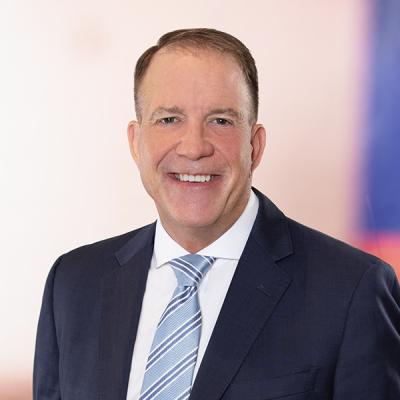New Opportunities from DOE for Domestic Manufacturing of Advanced Batteries
As part of the Biden administration’s continued efforts to advance the nation’s clean energy transition, the US Department of Energy’s (DOE) Advanced Materials and Manufacturing Technologies Office (AMMTO) announced a new funding opportunity to advance the research and development of platform technologies that improve the manufacturability, scalability, reproducibility, and circulatory flow of sodium-ion batteries, flow batteries, and nanolayered films for energy storage.
With up to $15.7 million available, AMMTO is looking to increase productivity and lower the costs of domestic battery production.
Interested parties must submit concept papers of no more than five pages by March 4, 2024. Applicants are strongly encouraged to submit their concept papers at least 48 hours in advance of the submission deadline.
AMMTO anticipates granting 13 awards under this opportunity, with award amounts ranging from $1.1 million to $4.1 million. Underserved communities and underrepresented groups are encouraged to participate. AMMTO may issue one, multiple, or no awards.
Awards will run from 24 to 36 months, comprised of one or more budget periods. Project continuation will be contingent upon several elements, including satisfactory performance and a go/no-go decision.
Why It Matters
This funding opportunity announcement (FOA) aligns with DOE’s Energy Storage Grand Challenge and has the potential to make strong contributions to the Biden administration’s goals of decarbonizing the electrical grid, industry, and transportation. Promoting a robust US battery manufacturing industry has received strong bipartisan support, which is an important point to note as we head into the 2024 elections.
Programmatically, this FOA complements previous FOAs released by DOE’s Manufacturing Energy Supply Chain (MESC) that promote full-scale manufacturing of battery technologies. ML Strategies featured this FOA in a previous blog post. Companies with technologies that may not have been sufficiently mature for the MESC FOA can potentially take advantage of this newly released AMMTO funding opportunity. Depending on future appropriations and program objectives, a successful applicant could then apply to a future MESC FOA to support full-scale manufacturing.
The targeting of these discrete battery technologies in this most recent FOA demonstrates a forward-thinking approach from the Biden administration as to which sectors will enable the United States to compete most effectively on the global scale and establish domestic independence in the electrification transition. Additionally, and although not a focus in this FOA, intellectual property primarily in the form of patents and trade secrets will be a key factor in both the ability of companies to make meaningful advancements in these Topic Areas, as well as the United States’ ability to protect domestic innovation and homegrown markets against foreign competition. We envision company IP rights playing a large role through either litigation and/or licensing in achieving these objectives.
Topic Areas
The FOA includes two topic areas with subtopics:
Topic Area 1- Platforms for Next-Generation Battery Manufacturing:
This topic centers on platforms facilitating adaptable, scalable, and precise battery manufacturing, emphasizing the development of advanced machines for critical battery components and systems.
1.1 Processes and Machines for Sodium-ion Batteries
1.2 Processes and Design for Manufacturability of Flow Batteries
1.3 Scalable Manufacturing of Nanolayered Films for Energy Storage
Topic Area 2- Smart Manufacturing Platforms for Battery Production:
This topic underscores the potential of integrating processing data and computational learning to automate battery manufacturing. The focus is on developing versatile smart manufacturing platforms to enhance core aspects of the design, control, and monitoring of battery manufacturing.
Expectations of Applicants
Applicants are expected to identify a baseline technology to compare their improvement against and justify why that technology is the appropriate baseline. In addition, applicants shall provide at least three metrics for measuring their progress. Applicants shall also identify quantitative minimum and stretch goals that use these metrics. Examples of acceptable metrics and goals are provided in the FOA for each subtopic.
Eligible Requirements
This FOA will only accept new applications and not renewals of existing DOE Office of Energy Efficiency and Renewable Energy–funded awards.
Eligible applicants include entities that are organized, chartered, or incorporated under a particular state or territory of the United States. Federal agencies and instrumentalities (other than DOE) are eligible to participate as subrecipients but are not eligible to apply as prime recipients. Nonprofit organizations are not eligible to apply for funding. Foreign entities are eligible to participate in limited circumstances but require a waiver from DOE to do so.




